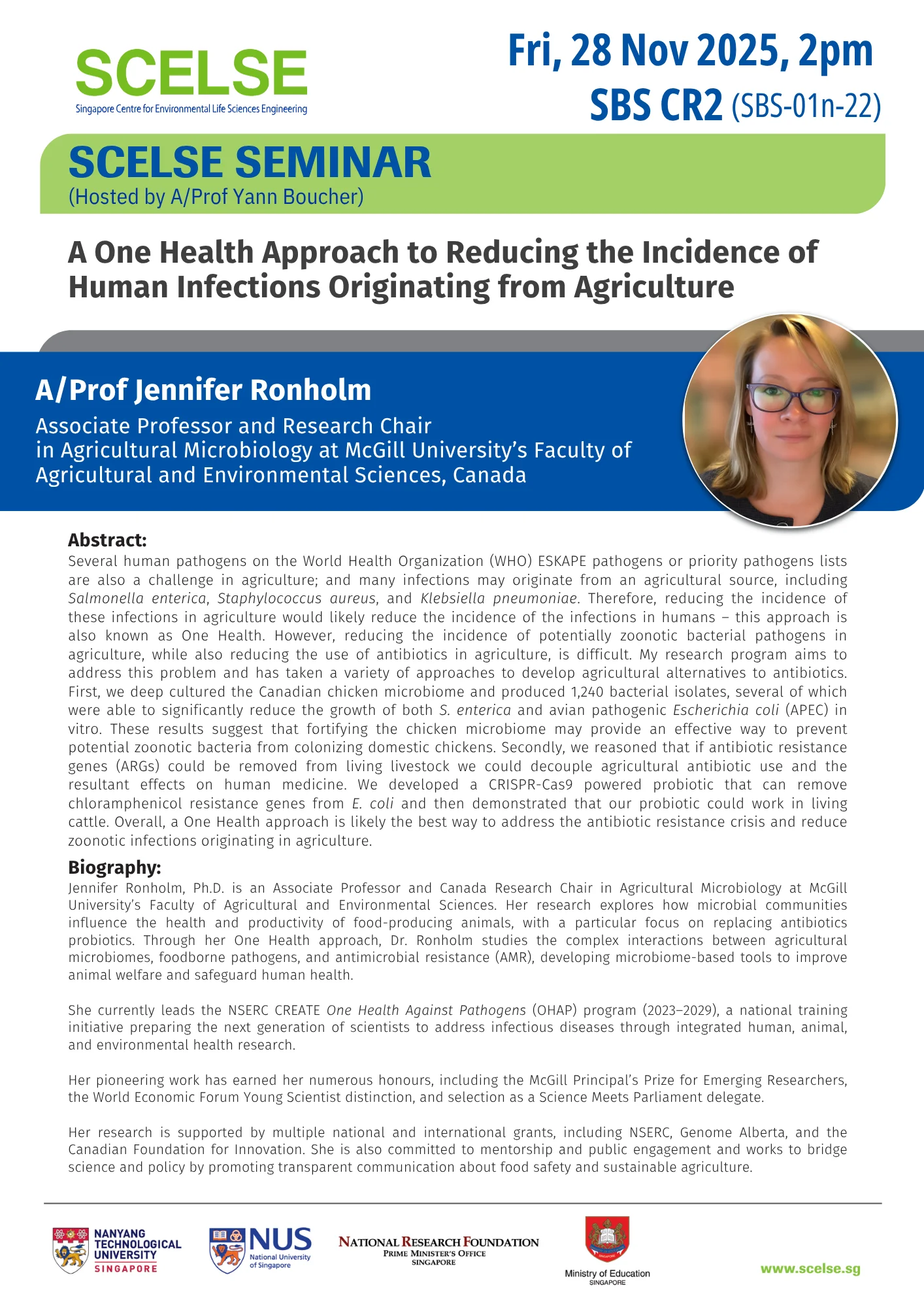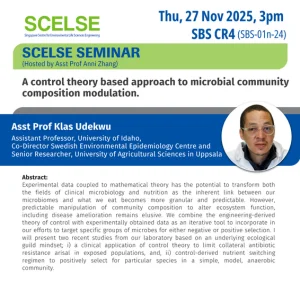A One Health Approach to Reducing the Incidence of Human Infections Originating from Agriculture
Date: Friday, 28 Nov 2025
Time: 2pm –3pm
Venue: SBS CR2 (SBS-01n-22)
Abstract:
Several human pathogens on the World Health Organization (WHO) ESKAPE pathogens or priority pathogens lists are also a challenge in agriculture; and many infections may originate from an agricultural source, including Salmonella enterica, Staphylococcus aureus, and Klebsiella pneumoniae. Therefore, reducing the incidence of these infections in agriculture would likely reduce the incidence of the infections in humans – this approach is also known as One Health. However, reducing the incidence of potentially zoonotic bacterial pathogens in agriculture, while also reducing the use of antibiotics in agriculture, is difficult. My research program aims to address this problem and has taken a variety of approaches to develop agricultural alternatives to antibiotics. First, we deep cultured the Canadian chicken microbiome and produced 1,240 bacterial isolates, several of which were able to significantly reduce the growth of both S. enterica and avian pathogenic Escherichia coli (APEC) in vitro. These results suggest that fortifying the chicken microbiome may provide an effective way to prevent potential zoonotic bacteria from colonizing domestic chickens. Secondly, we reasoned that if antibiotic resistance genes (ARGs) could be removed from living livestock we could decouple agricultural antibiotic use and the resultant effects on human medicine. We developed a CRISPR-Cas9 powered probiotic that can remove chloramphenicol resistance genes from E. coli and then demonstrated that our probiotic could work in living cattle. Overall, a One Health approach is likely the best way to address the antibiotic resistance crisis and reduce zoonotic infections originating in agriculture.
Speaker:
A/Prof Jennifer Ronholm
Associate Professor and Research Chair
Agricultural Microbiology at McGill University’s Faculty of Agricultural and Environmental Sciences, Canada
Biography:
Jennifer Ronholm, Ph.D. is an Associate Professor and Canada Research Chair in Agricultural Microbiology at McGill University’s Faculty of Agricultural and Environmental Sciences. Her research explores how microbial communities influence the health and productivity of food-producing animals, with a particular focus on replacing antibiotics probiotics. Through her One Health approach, Dr. Ronholm studies the complex interactions between agricultural microbiomes, foodborne pathogens, and antimicrobial resistance (AMR), developing microbiome-based tools to improve animal welfare and safeguard human health. She currently leads the NSERC CREATE One Health Against Pathogens (OHAP) program (2023–2029), a national training initiative preparing the next generation of scientists to address infectious diseases through integrated human, animal, and environmental health research. Her pioneering work has earned her numerous honours, including the McGill Principal’s Prize for Emerging Researchers, the World Economic Forum Young Scientist distinction, and selection as a Science Meets Parliament delegate. Her research is supported by multiple national and international grants, including NSERC, Genome Alberta, and the Canadian Foundation for Innovation. She is also committed to mentorship and public engagement and works to bridge science and policy by promoting transparent communication about food safety and sustainable agriculture.





